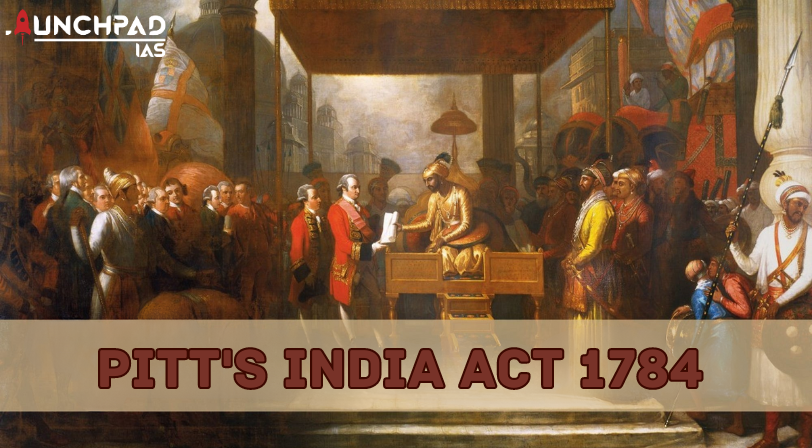Provisions of the Act
- For political matters, the Board of Control was created and for commercial affairs, the Court of Directors was appointed.
- The Board of Control took care of civil and military affairs. It comprised of 6 people:
- Secretary of State (Board President)
- Chancellor of the Exchequer
- Four Privy Councillors
- In this dual system of control, the company was represented by the Court of Directors and the British government by the Board of Control.
- The act mandated that all civil and military officers disclose their property in India and Britain within two months of joining.
- The Governor-General’s council’s strength was reduced to three members. One of the three would be the Commander-in-Chief of the British Crown’s army in India.
- The Presidencies of Madras and Bombay became subordinate to the Bengal Presidency. In effect, Calcutta became the capital of the British possessions in India.
Features of Pitt’s India Act
- This act made a distinction between the commercial and political activities of the East India Company.
- For the first time, the term ‘British possessions in India’ was used.
- Pitt’s India Act 1784 act gave the British government direct control over Indian administration.
- The Company became subordinate to the British government unlike as in the previous Regulating Act of 1773, where the government only sought to ‘regulate’ matters and not take over.
- This act established the British Crown’s authority in the civil and military administration of its Indian territories. Commercial activities were still a monopoly of the Company.
Defects of Pitt’s India Act
- The reduction of executive council members gave the Governor-General an extra edge. This is so because the Governor-General needed only one vote from the executive council for the implementation of his wilful decisions.
- The clash of powers between the executive council and the Governor-General in case of any deadlock regarding voting on a certain decision-making.
- The Governor-General was deprived of his military powers while he was the supreme commander of the East India Company, and the Parliament was situated in England. During emergency situations, sudden military decisions are to be taken, but due to Pitt’s India Act 1784, the Governor-General was left with no military powers.
- The powers of the Governor-General, the Board of Control, and the Court of Directors were not clearly described.


